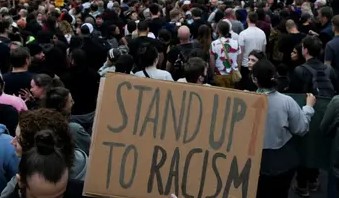The United Kingdom is currently engulfed in widespread riots and protests, ignited by a recent deadly attack at a children’s dance event and exacerbated by a surge of misinformation. The community mourning the loss of three young girls escalated into a nationwide crisis, with anti-immigration sentiments added.
On July 29, a tragic stabbing at a Taylor Swift-themed dance event in Southport claimed the lives of three girls, aged between six and nine. Additionally, eight children and two adults were injured and hospitalised. The attacker, 17-year-old Axel Rudakubana, was apprehended and faces multiple charges, including three counts of murder and ten counts of attempted murder.
Despite Rudakubana being a Cardiff native, false claims circulated on social media suggesting he was an Islamist migrant. This misinformation sparked violent anti-Muslim demonstrations in Southport the following day, including an attempted assault on a local mosque.
The unrest intensified as protesters gathered outside Prime Minister Keir Starmer’s office on Downing Street. Demonstrators, chanting slogans such as “Save our kids” and “We want our country back,” clashed with police, resulting in 111 arrests and injuries to five officers. This followed previous violence in Southport where over 50 officers were injured and police vehicles were set ablaze.
Riots have since spread to over 20 cities, including Sunderland, Manchester, Plymouth, and Belfast. Protesters, many affiliated with far-right groups, have targeted migrants and Muslims, vandalised properties, and clashed with law enforcement.
Keir Starmer has condemned the violence, attributing the unrest to activists like Stephen Yaxley-Lennon, who have been accused of spreading falsehoods. Social media platforms are under scrutiny for their role in amplifying these misleading narratives.
Police reports indicate that most rioters were far-right agitators from outside the affected areas, although some locals and young people seeking excitement also participated. Counter-protesters and anti-fascist groups have mobilised to oppose the far-right demonstrators.
Many rioters, identifying as “patriots,” argue that high immigration levels are detrimental to British society, blaming immigrants for increased crime and violence. Rights groups, however, dismiss these claims as unfounded, attributing the unrest to extremist ideologies masked as patriotism.
In response to the riots, the government has swiftly increased prison capacity by nearly 600 places and deployed specialised officers to manage the situation.
Additionally, a 58-year-old man has been sentenced to three years in prison for violent disorder, and authorities are targeting those spreading hate on social media. Science Minister Peter Kyle has met with major tech companies to address the role of social media in inciting violence and spreading misinformation.

















